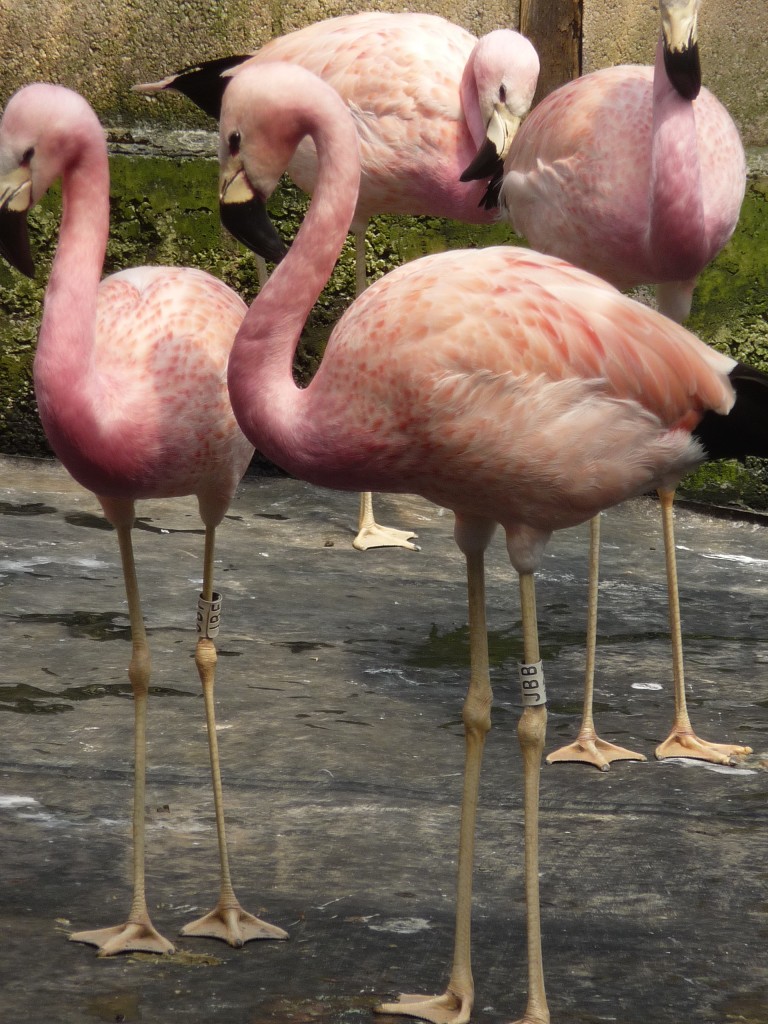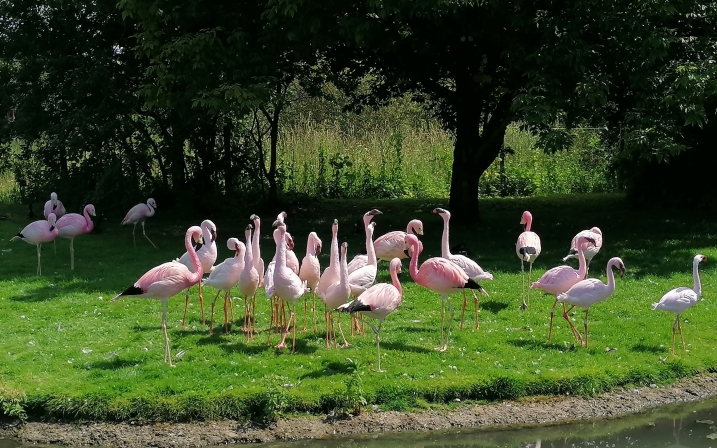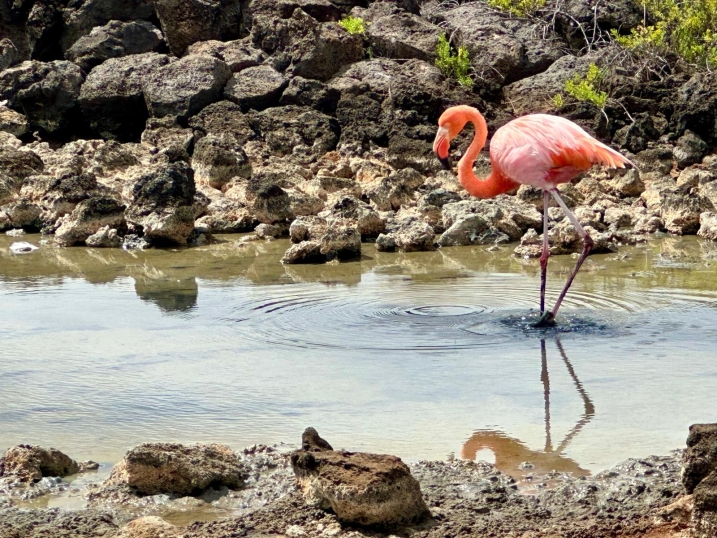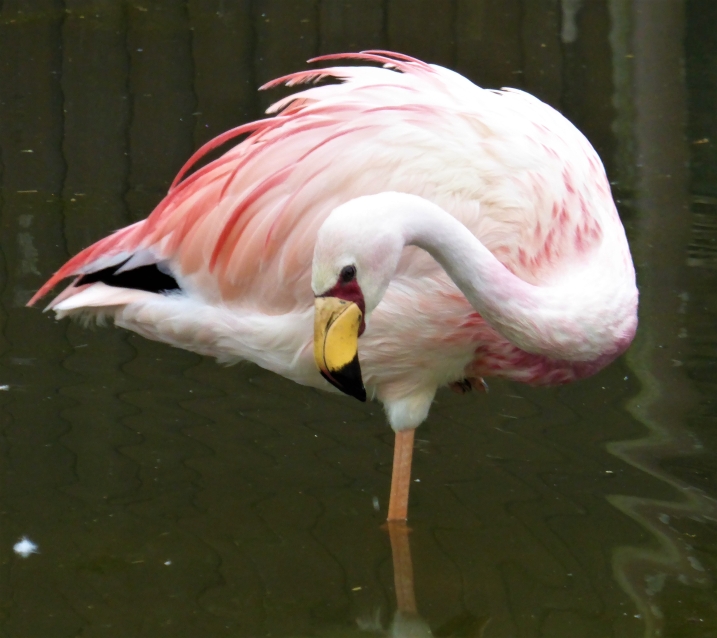Diamond flamingos.
As the UK celebrates 60 years of the reign of H.M. the Queen (incidentally the Patron of WWT), and reflects on her long-term of exemplary service in office, I thought it would be interesting and topical to draw attention to the longevity and tenacity of the flamingos as a species. An accurate, definitive lifespan of Phoenicopteriformes (the posh, technical term for the group that all flamingos belong to) is very difficult to find. In fact, scientists do not know precisely how long flamingos will, and can, live for. The famous ornithologist Leslie Brown who wrote a seminal text on flamingos at the end of the 1950s (and was studying lesser flamingos in the Rift Valley in East Africa in the same year as the Queen came to the throne) writes that, based upon his own calculations of birth and date rates, and overall numbers in the flocks that he saw, that the birds could be anything up to 130-years-old. It has often been pondered by those that study flamingos, "why do they live so long?" The substantial flocks at WWT are very useful models for looking at how these birds age, how long they can remain breeding for and just how long will they live for. Certainly, flamingos are a very hardy birds and in captivity they pose little problems to the vet looking after them. Aside from severe cold weather, broken legs and heart attacks from over-exertion, flamingos are more "diseases resistant" than many other birds. In their natural environment, flamingos face fewer predators than lots of other birds and because of their specialised habitat choice, they also face little competition from other animals wanting to eat the same food and live in the same area.
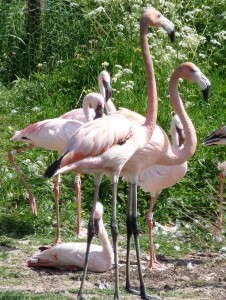
So to answer the question regarding why flamingos attain such a great age, you have to consider the bird's habitat and it's way of life. Flamingos are adapted to an environment that few other species are capable of living in. Hence they have an uninterrupted supply of food and no reason to compete with many other animals for their living space. This then means they can afford not to breed every year as they have few natural predators. Animals that only have few young in their lifetime will invest a lot in breeding when it does occur and hence are likely to have a prolonged lifespan because of this. Think about the elephant; with nearly a two year pregnancy, elephants are not going to have lots and lots of calves in their lifetime, but when they do produce a baby they look after it and invest a lot in it. Elephants also live for a very long time. The same "reproductive strategy" is used by the flamingo. Don't have young every year but live for a long-enough time so that you can pick and chose when you do breed. Flamingos have the luxury of coming from a very specialised habitat that is unfavourable to other animals, therefore you reduce predation and competition. Consequently, the flamingo is a wonder of natural selection and a highly-refined product of evolution. There may even be flamingo alive at WWT Slimbridge, as well as in other collection around the world that are also celebrating their equivalent of a Diamond Jubilee this summer.
